Bedroom Interior Design. The Result Will Be Highly Individual
Bedroom interior design. The result will be highly individual. Sometimes bedroom design can be done with your own hands, but fully realizing your personal dream in reality without purchases and external help is unlikely.
Bedroom interior design. The result will be highly individual. Sometimes bedroom design can be done with your own hands, but fully realizing your personal dream in reality without purchases and external help is unlikely. In principle, it doesn't matter whether the design of an office, living room, or bedroom is created; the process of creation is similar in all cases, but the result will be highly individual. 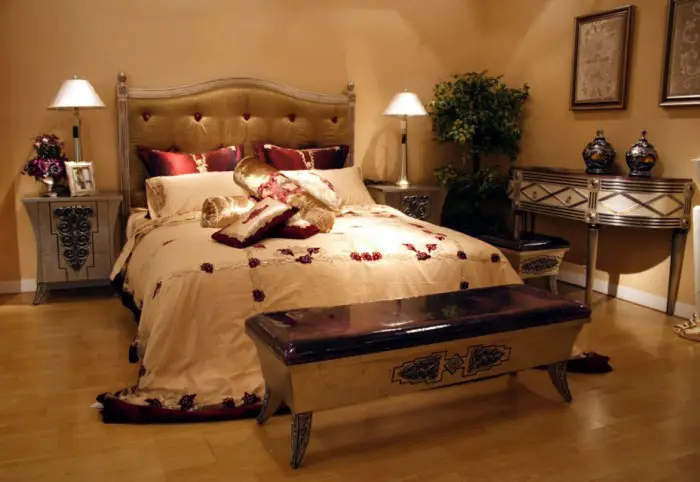
Photo 1 — Realizing your personal dream in reality is best left to professionals
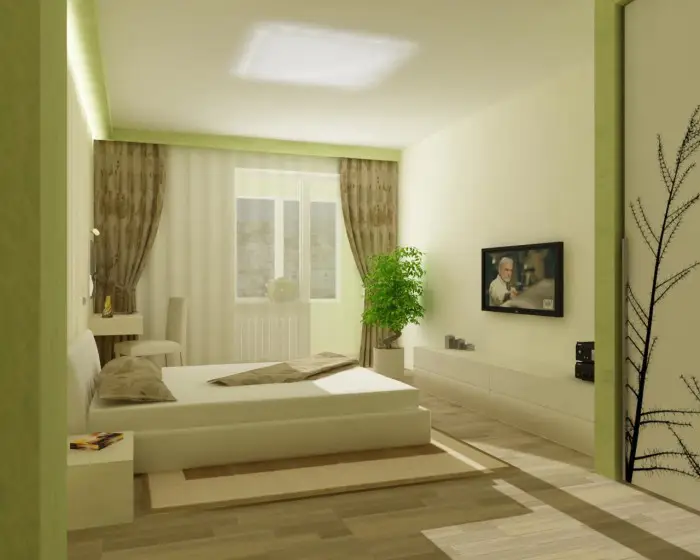
Photo 2 — A cozy bedroom interior design option
There are many examples online that can already be considered typical projects or, to put it differently, project sketches, because interior design of a room, bedroom, or house without project documentation, based on which materials are purchased and work is performed, has little significance.
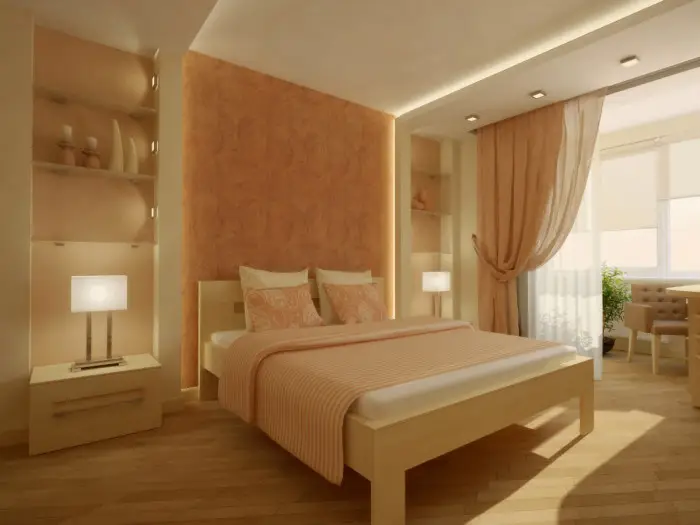
Photo 3 — An idea for creating interior design that can be used entirely or in the context of another concept
For example, the top photo shows one of many ideas for creating interior design that can be used entirely or in the context of another concept.
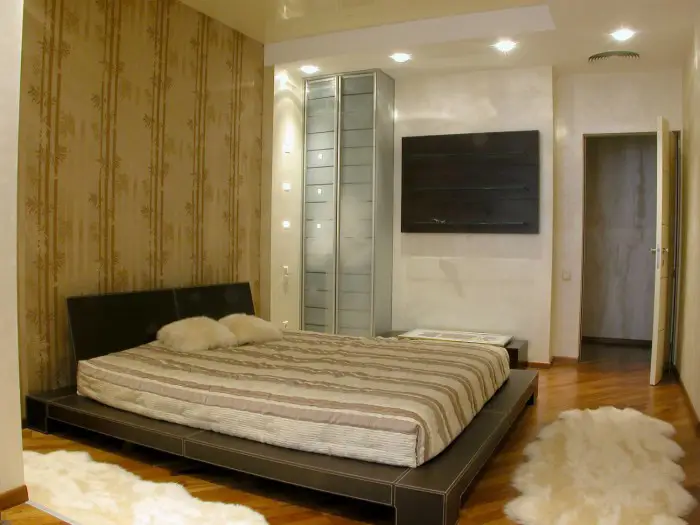
Photo 4 — The designer's concept involves a gypsum board ceiling with additional spotlights
For example, the designer's concept for this work involves a gypsum board ceiling with additional spotlights. In addition to that, using wall-mounted lights next to the bed and purposefully dimming the headboard creates an effect of expanding the space from any viewpoint in the room.
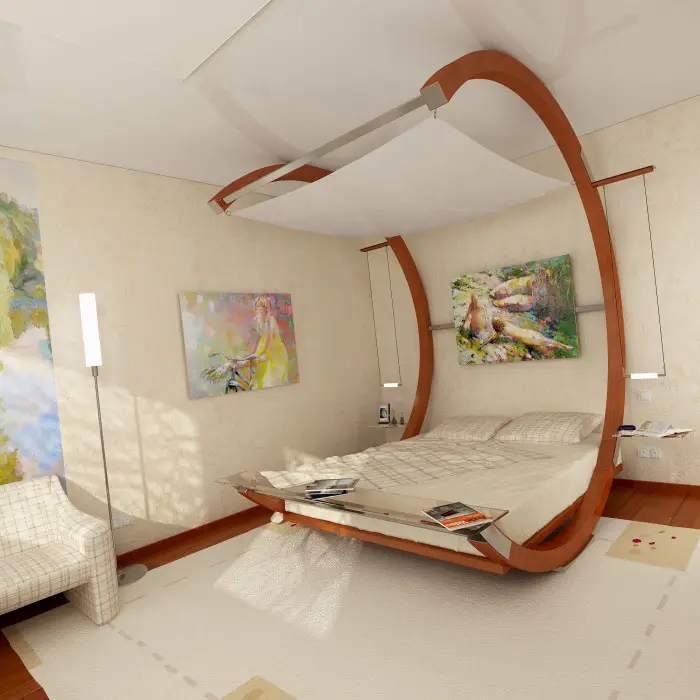
Photo 5 — The designer wanted the bed element to be central in the entire interior
The photo of this mini bedroom shows the designer's intention to make the bed element central in the entire interior, which they successfully achieved. The supporting structure of the bed itself, as the main element, matches the floor in color and texture, making the bed visually continue the floor.
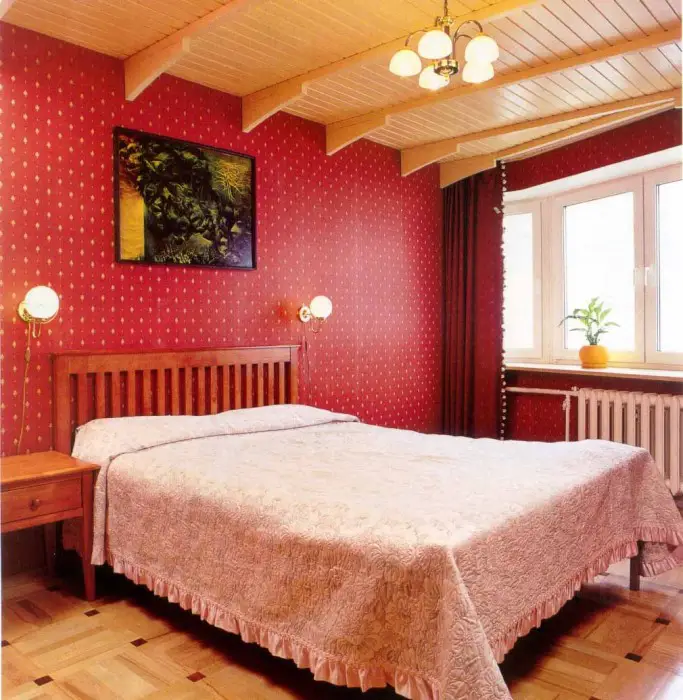
Photo 6 — The designer attempted to visually expand the area around the bed using contrasting color combinations of walls, floor, and ceiling
This simple and fairly economical design attempts to visually expand the area around the bed using contrasting color combinations of walls, floor, and ceiling: dark walls between lighter floors and ceilings visually narrow the wall, making it less 'important' in the space.
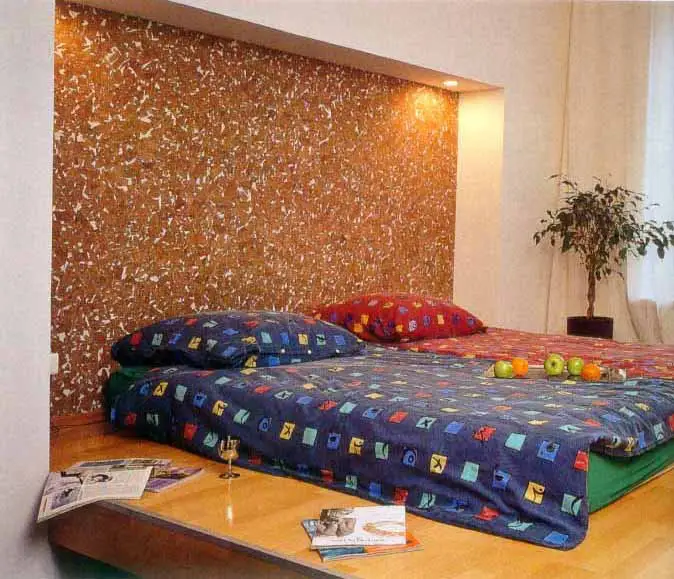
Photo 7 — The designer wanted to elevate the bedroom area and expand it by creating a wide base under the bed
In the version with a bed that has such wide edges, the designer wanted to elevate the bedroom area and expand it by creating a wide base under the bed. In this case, the central role of the bed is not disputed and the entire space is dedicated to sleeping.
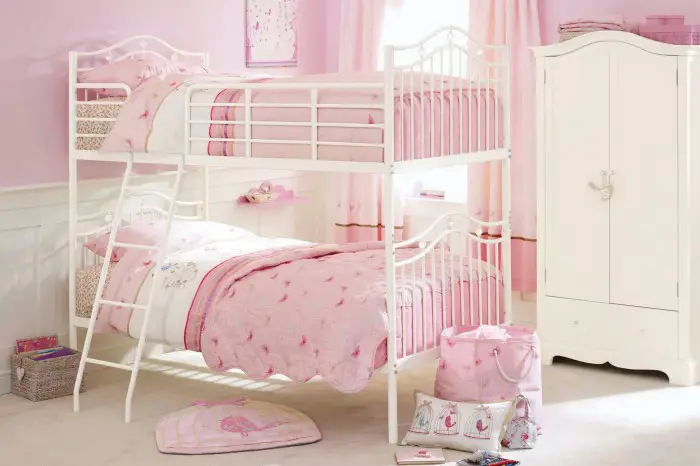
Photo 8 — Some items must be duplicated and tied to different sleeping areas
Design work for children and teenagers can differ significantly, as first of all, this is often a shared space used by multiple individuals, and secondly, some items must be duplicated and 'tied' to different sleeping areas.
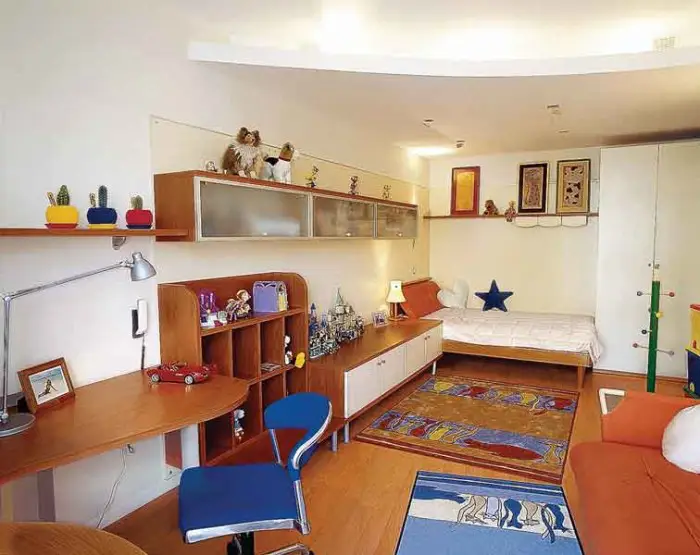
Photo 9 — The placement of each piece of furniture in a children's bedroom requires consideration of how it is used
The coexistence in children's bedrooms requires compromise solutions from the designer: the placement of each piece of furniture must consider how it is used. At the same time, the presence and use of other items should not interfere with others.
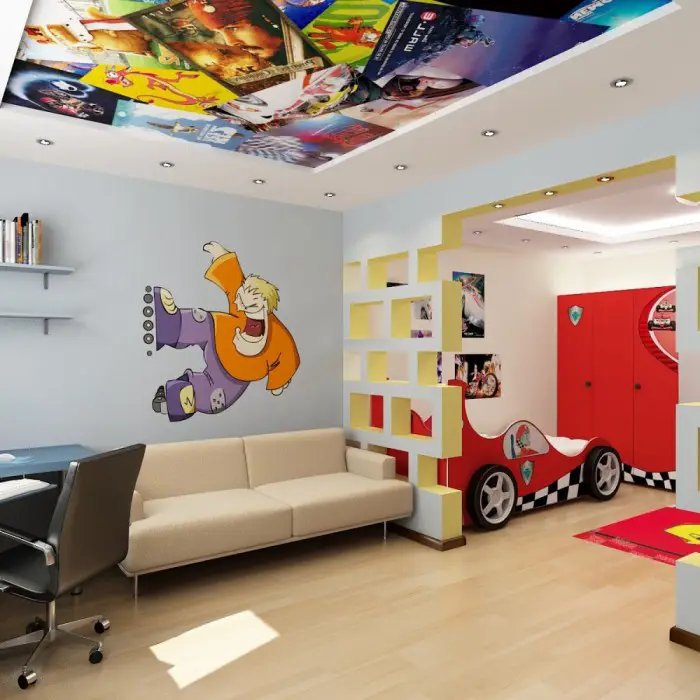
Photo 10 — Sometimes additional space dividers in the interior solve the problem of dividing a room into specific spatial zones
In certain cases, adding additional space dividers in the interior solves the problem of dividing a room into specific spatial zones intended for particular purposes.

Photo 11 — Visual effects can be implemented in various ways
However, visual effects can be implemented in various ways, as demonstrated by the example above. Concluding, one could say that a designer's work in modeling living space is precisely about finding such individual solutions.
Need a renovation specialist?
Find verified professionals for any repair or construction job. Post your request and get offers from local experts.
You may also like
More articles:
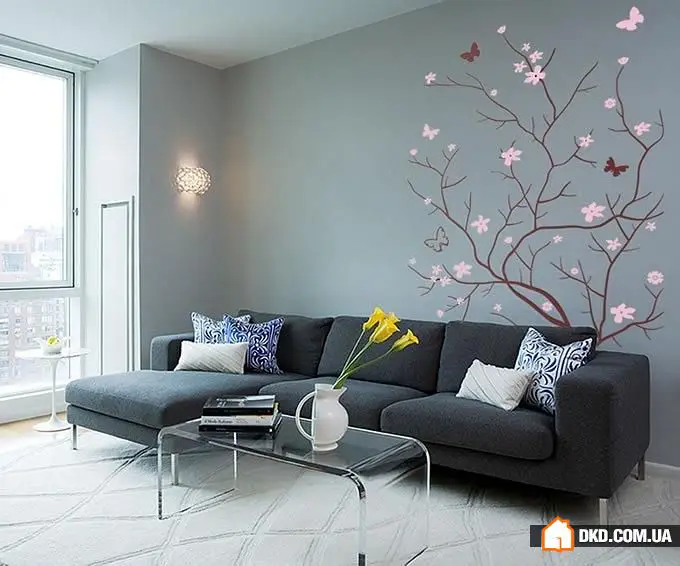 Living Room Interior — Decorate It Yourself
Living Room Interior — Decorate It Yourself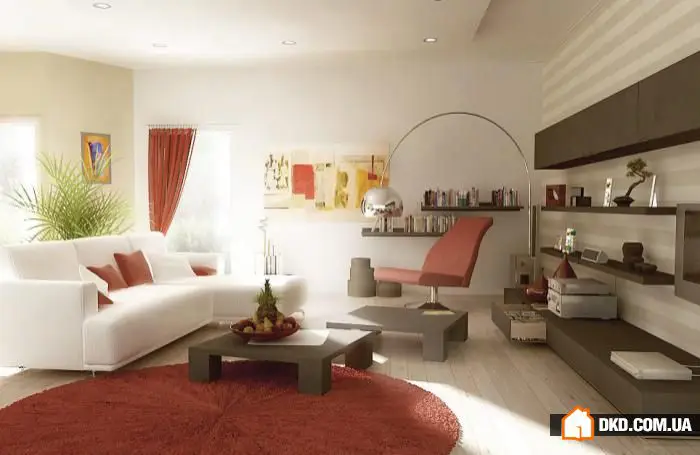 Color Combinations in Living Room Interior
Color Combinations in Living Room Interior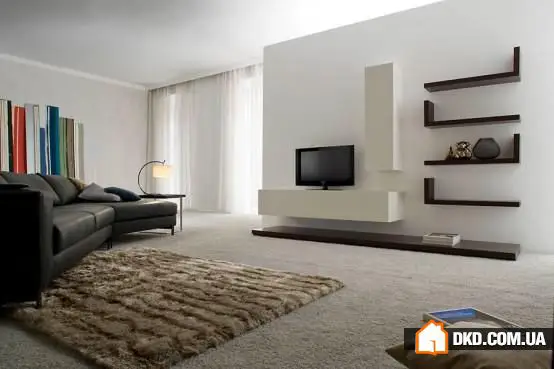 Minimalism in Living Room Interior
Minimalism in Living Room Interior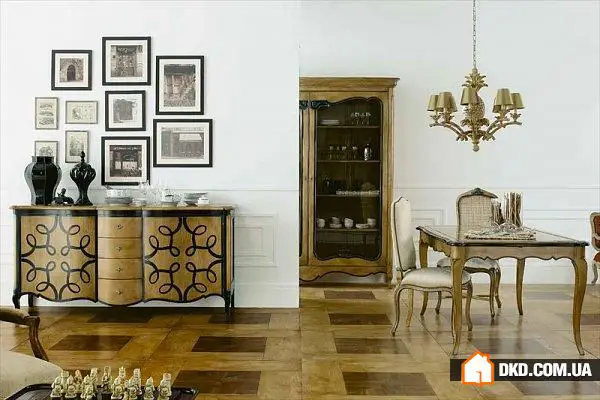 Classical Style Living Room Interior
Classical Style Living Room Interior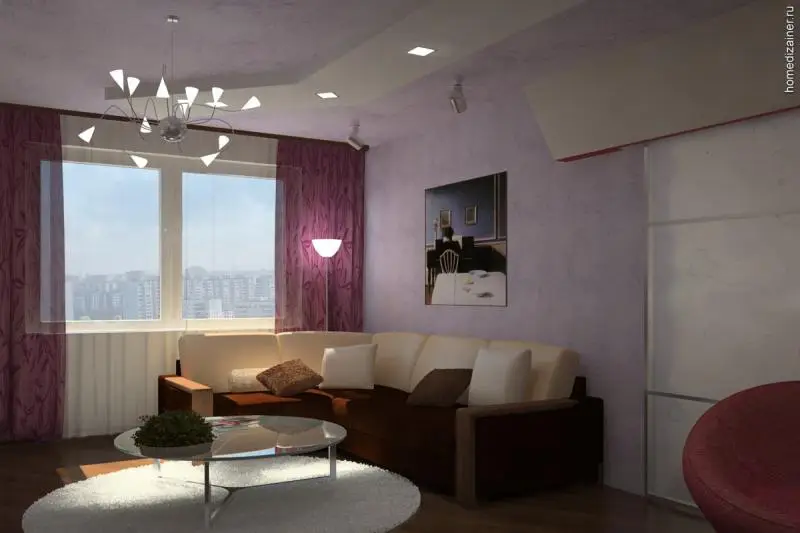 Living Room Interior with Corner Sofa. Large Sofa for Big Parties
Living Room Interior with Corner Sofa. Large Sofa for Big Parties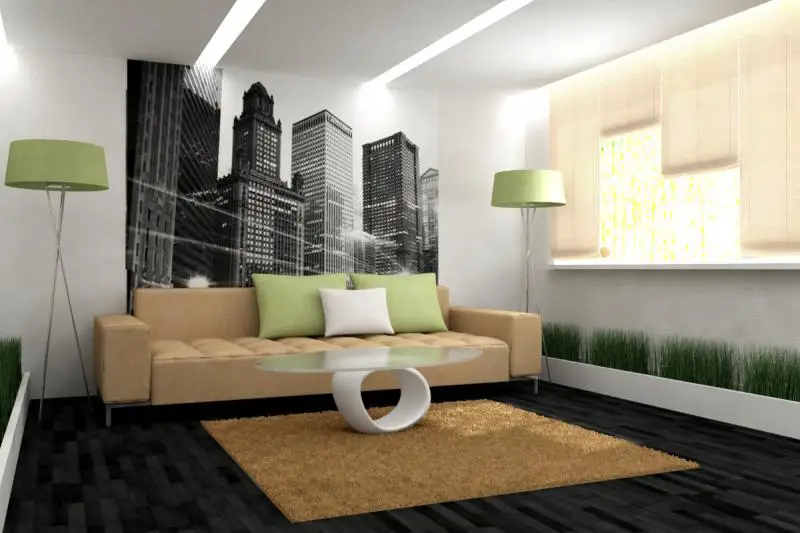 How to Properly Decorate the Interior of a Narrow Living Room
How to Properly Decorate the Interior of a Narrow Living Room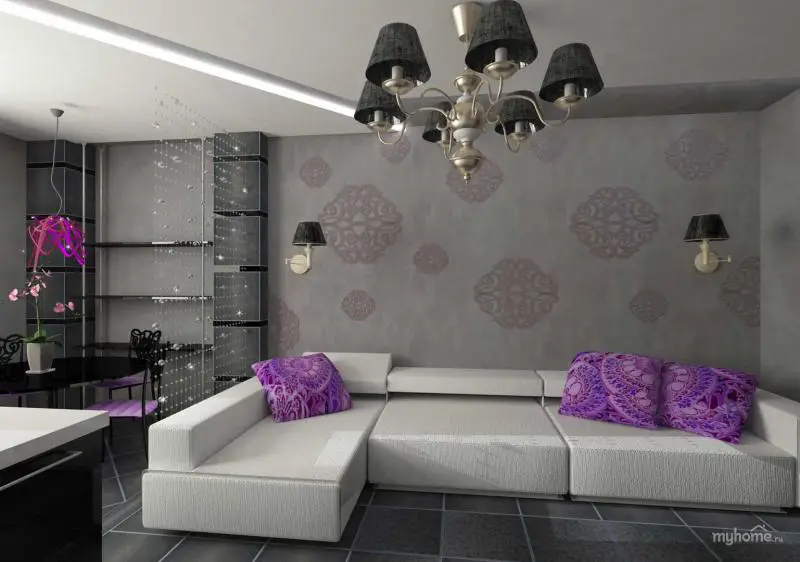 Modern Living Room Bedroom Design
Modern Living Room Bedroom Design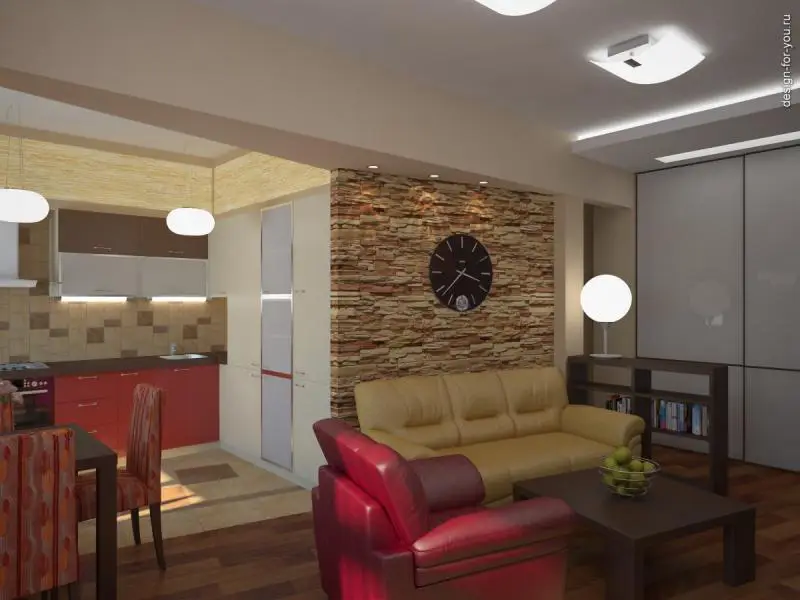 Design of a Small Living Room. How to Smartly Arrange the Interior of a Small Living Room
Design of a Small Living Room. How to Smartly Arrange the Interior of a Small Living Room